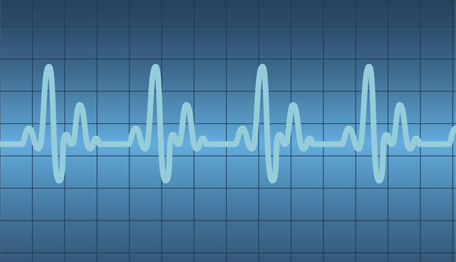The Human Brain: a steep cutoff filter
June 16, 2016
on
on

The filtering capacity of the human brain is extraordinarily powerful, for example in eliminating the sensations of our hearts beating. This little known mechanism ensures that the physiological internal noises, notably the brouhaha from the heart, does not interfere with our perception of the outside world. A phenomenon which may be linked to anxiety.
Researchers at the Centre for Neuroprosthetics at EPFL have discovered a specific area of the brain that distributes the processing of internal and external sensations, by observing that visual stimuli are not as well perceived when they are linked to the rhythm of the heart. In other words, the brain ignores information, in this case visual, if it is synchronised with the heartbeat.
Roy Salomon, of the Laboratory of Cognitive Neuroscience, explains that “We don’t see everything that falls on the retina like a video camera does. The brain itself decides which information to bring to awareness”.
Surprise, it’s our heart that influences this filtering! In effect, a specific area of the brain, the Insular Cortex, intercepts the sensations of the heart beating. Conversely, when the visual stimuli are not linked to the heartbeat, the insular cortex does not block them and the subject perceives them properly.
The reasons for this selective blindness are still unclear, but some interesting theories have been formulated by the researchers.
Researchers at the Centre for Neuroprosthetics at EPFL have discovered a specific area of the brain that distributes the processing of internal and external sensations, by observing that visual stimuli are not as well perceived when they are linked to the rhythm of the heart. In other words, the brain ignores information, in this case visual, if it is synchronised with the heartbeat.
Roy Salomon, of the Laboratory of Cognitive Neuroscience, explains that “We don’t see everything that falls on the retina like a video camera does. The brain itself decides which information to bring to awareness”.
Surprise, it’s our heart that influences this filtering! In effect, a specific area of the brain, the Insular Cortex, intercepts the sensations of the heart beating. Conversely, when the visual stimuli are not linked to the heartbeat, the insular cortex does not block them and the subject perceives them properly.
The reasons for this selective blindness are still unclear, but some interesting theories have been formulated by the researchers.
Read full article
Hide full article



Discussion (1 comment)
Cl;ive Collins 8 years ago
Ask any competent telegraphist about reading a specific signal through maybe half a dozen other stations and he will say 'its easy'.
For may years it has been known that a pile up of stations can be sorted out to one single station in the mind of the listener simply by concentrating on the one station and the audio frequency of that stations traffic and nothing else. Ships telegraphists were past masters at the work and there has never been a device or circuit made that can replicate the capability of a good telegraphist.
And they want to do away with the simplest and most reliable form of communication,
basically because those who want rid of the system cannt learn how to use it, therefore it 'has no use'.